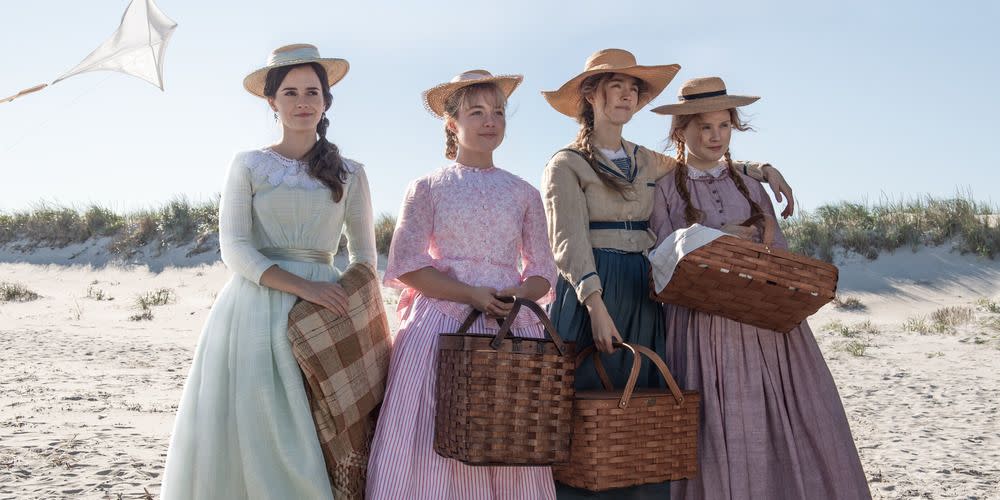Why ‘Little Women’ Should Win Best Adapted Screenplay Based on the Ending Alone

If you’ve seen more than one film adaptation of Louisa May Alcott’s Little Women, you know they all end basically the same way the book does. But in the 2019 version, written and directed by Greta Gerwig, it’s so different and fresh that it merits making a movie out of a book that’s been recreated, like, seven different times. It’s also one hundred percent the reason it should win the Best Adapted Screenplay Oscar at this weekend’s Academy Awards.
[If it wasn’t apparent by the headline of this article, there are spoilers ahead for Little Women!]
As you probably know, the book ends with Jo marrying the professor character, and there’s a flash-forward where Jo has opened her school; her sister Amy and her husband, Laurie, have kids; and they’re all living “happily ever after” or something. It’s a sweet ending, but Alcott never wanted the Jo character (based on herself) to get married. Her publisher demanded it, so she had to write it in.
Gerwig decided that should be part of the narrative in this adaptation of the film. She spoke about it on a podcast late last year.
“One of the things that I discovered while I was researching Louisa May Alcott, and I tried to bring in a lot of this, is unlike Jo March, who does get married and have children, Louisa May Alcott never got married and she never had children. But she was convinced that she needed to have Jo get married and have children in order to sell the book, but she never wanted that for her heroine. She wanted her to remain, as she called it, a literary spinster, but they convinced her no, this is not gonna work, so she did it the other way.
“Part of what I wanted to do was 150 years later give her an ending she might have liked. I thought if we can’t do this now, then we’ve really made no progress and we should all hang our heads. But the structure truly came out of wanting to introduce this layer of authorship everywhere in it, how we author our own lives even if we’re not writers and how we kind of tell and retell the story of how we became who we are.”
So to fit both of those ideas into one ending, Gerwig mashed up two sequences: Jo riding to the train station to tell Professor Bhaer she loved him, which is ripped straight from the book, and another scene of Jo watching the very first printing of her book. That scene isn’t really something that happens for Jo, but it is something that happened for Alcott. Gerwig said she wanted the audience to feel like they were watching someone’s first kiss when they saw Jo with her book, which is the most adorable thing I’ve heard in my entire life.
This book has been adapted a bunch of times at this point. But part of what makes this version so special is that the ending reminds audiences that Little Women isn’t really about who Jo ends up with. It’s a book that inspired generations of women to be writers or, frankly, to be whatever they wanted, and the 2019 adaption recognizes that.
You Might Also Like

